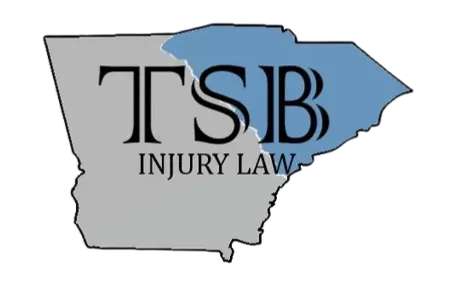What happens when you’re hit by a company vehicle? How much is the settlement? Attorney Taylor Braithwaite explains what you need to know if you’re hit by a company vehicle.
When you’re hit by a company vehicle, the amount of a settlement may depend on whether the person driving the company vehicle was in the course and scope of their employment at the time of the crash. The insurance policies held by the employer and the driver also matter.
Call our Aiken car accident lawyer at The Law Office of Taylor S. Braithwaite at (803) 220-0000 for a personalized consultation about your case.
Understanding Accident Settlements for Company Vehicles
A company vehicle is a motor vehicle that is owned by a company and provided for an employee to use. The employer may determine the terms of use including whether the employee can use the vehicle for personal use. A company vehicle is an employee perk, and it’s convenient for the employer, too.
Types of company vehicles
A company vehicle may include:
- Cars
- Vans
- Shuttles
- Box trucks
- Minivans
- Pickup trucks
- Bus
- Sedans/SUVs
There are many different types of company vehicles. Some vehicles need to transport only the employee to appointments and worksites. Other vehicles may transport groups of people or transport equipment to and from job sites.
Company vehicles may work either for both the employer and the employee. However, a significant number of car accidents involve company vehicles.
Can I Get a Settlement After Being Hit by a Company Vehicle?
A settlement after being hit by a company vehicle depends on multiple factors: fault, damages, the course of employment and insurance policies.
Fault
In South Carolina, car accidents are decided on a fault basis. In other words, the party causing the accident is legally responsible for damages. This is true when you’re hit by a company vehicle and in all other types of car crashes.
Someone else – the driver, their employer or another party – must be at fault for causing the accident for you to claim compensation.
Damages
If the other party is at fault for the accident, the amount of settlement you receive depends on the damages that you sustain. The worse you are hurt, and the more your losses, the more you should be compensated. This is true for all accidents including ones involving company cars. Your damages impact your settlement.
Employer liability – respondeat superior
Whether the employer is liable for the accident impacts your settlement. Even when it’s a company car, employer liability isn’t automatic. There are two ways that an employer may be legally responsible for the actions of their employee.
The first way is by respondeat superior. That means that an employer is responsible for what their employees do. They choose their employees and assign them duties. It’s only fair that they are legally responsible when there is harm. In South Carolina, the employer, as the master of the employee, answers for the tortious act of their servant, when those acts occur in the course and scope of the servant’s employment. Sams v. Arthur, 135 S.C. 123, 128-131 (1926).
The critical question is whether the employee was doing the bidding of the employer at the time of the accident. If they were on their way to their next appointment, they were in the course of employment. If they were commuting to work or driving the vehicle on personal time, the employer is probably not liable.
Note: A person may be acting within the scope of their employment even if they exceed their given authority or job duties assigned by the employer.
Whether the employee was acting in the scope of employment when the person was hit by a company vehicle is generally a question for the jury to decide.
Employer liability – independent liability in tort
Aside from being responsible for the actions of an employer, an employer is responsible for the hiring and management of their employees. An employer may be independently liable in tort if they knew or should have known that giving someone a company vehicle would create an undue risk of harm to the public. Degenhart v. Knights of Columbus, 309 S.C. 114, 116 (1992).
There are two primary questions – first, whether the tortfeasor is an employee, as opposed to an independent contractor or a non-employee who borrowed the car; second, whether there is employer liability, by scope of employment or negligent entrustment of the vehicle. Anderson v. West, 270 S.C. 184, 187 (1978).
Insurance to pay compensation
The question of whether the employer bears legal responsibility is a critical one in determining how much a settlement will be. It determines what insurance coverage applies to pay compensation. The company may have insurance that applies only when the vehicle is driven for a work purpose. The insurance may not cover employee driving for personal matters.
There may be extended non-owned coverage for named individuals or a named nonowner policy or endorsement. You must investigate what insurance policies have been taken out on the vehicle. If the company insurance doesn’t apply, the driver’s insurance may apply.
All of this to say, when you’re hit by a company vehicle, what insurance policies exist, and whether they apply, are likely to influence your settlement.
Practitioner note: Investigate the circumstances of the case, rather than take the insurer’s word for it about whether the person was driving in the scope of their employment. Vehicle use may be covered by the employer if they require the employee to drive the vehicle.
Company car hit you from behind?
If a company car has hit you from behind, they are usually at fault. You may qualify to claim compensation for financial losses and personal pain and suffering. Get help from our legal team. Call us to talk about your situation and how we can help.
Talk to a Lawyer
Have you been hit by a company vehicle? The amount of your settlement depends on some complex factors. Attorney Taylor Braithwaite can investigate your claim and determine what your settlement may be worth. Call (803) 220-0000 or message us for a free consultation about your case.



